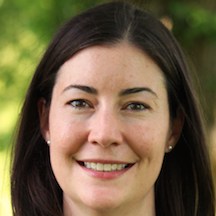Oregon State University Scholars Explore How to Get More Women Students in Advanced Economic Courses
Posted on Jun 23, 2021 | Comments 0
 Economics has come under increased scrutiny in recent years as it remains a very male-dominated field, with women receiving only about a third of doctoral and bachelor’s degrees in economics each year, and women accounting for only about 15 percent of full professors in economics.
Economics has come under increased scrutiny in recent years as it remains a very male-dominated field, with women receiving only about a third of doctoral and bachelor’s degrees in economics each year, and women accounting for only about 15 percent of full professors in economics.
Current best practices for encouraging more women students to pursue degrees in economics may actually have the opposite effect and worsen gender disparities in the field, a recent study from Oregon State University found.
The study examined whether mass emails telling introductory economic students about promising career and earning opportunities helped increase women’s participation in higher-level economics courses. But instead, these emails appealed more to male students, increasing male enrollment and widening the existing gender gap. There was no change in the probability of women students majoring in economics.
 Elizabeth Schroeder, co-author of the paper and an associate professor of economics at Oregon State University, notes that “people might be underrepresented in economics for different reasons, and we need to have a deeper understanding of what those reasons are for different groups and to tailor our interventions accordingly.”
Elizabeth Schroeder, co-author of the paper and an associate professor of economics at Oregon State University, notes that “people might be underrepresented in economics for different reasons, and we need to have a deeper understanding of what those reasons are for different groups and to tailor our interventions accordingly.”
Though informational email nudges to students are considered a best practice by the American Economic Association, authors say colleges need to be careful they don’t worsen the problems they are trying to solve. They recommend more time-intensive interventions, such as mentoring, guest lectures by successful alumni, and updating course curriculum to better reflect the existence and economic concerns of women.
Dr. Schroeder stated that “if more women and underrepresented people understand the breadth of economics, they might be more interested in studying it. A lot of people think it’s only about money and finance and profits, but really it’s a study of how people make decisions. There are a lot of social and policy topics that you can study.”
Dr. Schroeder joined the faculty at Oregon State University in 2010. She is a graduate of Yale University where she double majored in economic and political science. Dr. Schroeder earned a master’s degree at the London School of Economics and Political Science and a Ph.D. in economics at Georgetown University in Washington, D.C.
The full study, “Promoting Female Interest in Economics: Limits to Nudges,” was co-authored by Todd Pugatch, an associate professor of economics at Oregon State. It was published in American Economic Association Papers and Proceedings. The study may be accessed here.
Filed Under: Gender Gap • Research/Study








